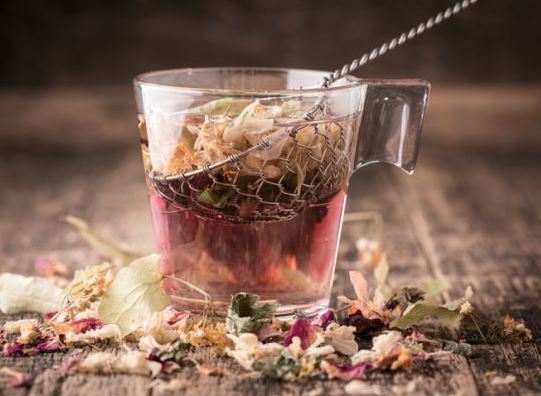Caffeine free tea | |

| |
Tea has been enjoyed for centuries, not only for its comforting flavor but also for its numerous health benefits. While many people enjoy the energy boost that comes with caffeinated teas, there is also a growing demand for caffeine-free alternatives. In this article, we will explore the world of caffeine-free tea and its various types, flavors, and health benefits. Whether you are looking for a soothing cup before bed or a delicious beverage for any time of the day, caffeine-free tea is an excellent choice. So, grab your favorite mug and let's dive into the world of caffeine-free tea! Caffeine Free Tea: A Closer LookCaffeine-free tea refers to any type of tea that is made from the leaves of the Camellia sinensis plant but does not contain caffeine. The caffeine content in tea leaves varies depending on factors such as the type of tea, processing methods, and steeping time. However, some individuals prefer to avoid caffeine due to its stimulating effects or for health reasons. Caffeine-free tea provides a wonderful alternative, allowing you to enjoy the flavors and benefits of tea without the jolt of caffeine. Benefits of Caffeine Free Tea
Types of Caffeine Free TeaWhen it comes to caffeine-free tea, there are several delightful options to explore. Each type offers unique flavors and potential health benefits. Let's take a closer look at some popular types of caffeine-free tea: 1. Herbal TeaHerbal teas are caffeine-free and made from a variety of dried flowers, herbs, and spices. They are known for their aromatic qualities and soothing effects. Popular herbal teas include chamomile, peppermint, hibiscus, and ginger. 2. Rooibos TeaRooibos tea, also known as red tea, is a South African herbal tea made from the leaves of the Aspalathus linearis plant. It has a naturally sweet and nutty flavor, making it a favorite among tea enthusiasts. Rooibos tea is rich in antioxidants and has been linked to various health benefits, including improved heart health and reduced inflammation. 3. Decaffeinated TeaDecaffeinated tea is a popular choice for those who still enjoy the taste of traditional tea but prefer to limit their caffeine intake. Decaffeination processes remove most of the caffeine from tea leaves while preserving the flavor and beneficial compounds. You can find decaffeinated versions of popular teas such as black tea, green tea, and oolong tea. 4. Fruit InfusionsFruit infusions, also known as fruit teas, are made by steeping dried fruits or fruit peels in hot water. They are naturally caffeine-free and offer a burst of fruity flavors. Common fruit infusions include apple tea, berry tea, and citrus blends. 5. Mate TeaWhile mate tea typically contains caffeine, there are also caffeine-free versions available. Mate tea is made from the leaves of the yerba mate plant and is a popular beverage in South America. It has a rich and earthy flavor and is often consumed for its potential health benefits, including increased energy and mental focus. FAQs about Caffeine Free TeaQ1: Is caffeine-free tea completely devoid of caffeine?A1: While caffeine-free tea has significantly reduced levels of caffeine compared to regular tea, it may still contain trace amounts. However, the caffeine content is negligible and unlikely to produce any stimulant effects. Q2: Can I enjoy caffeine-free tea during pregnancy?A2: Caffeine-free tea is generally considered safe for pregnant women. However, it is always best to consult with your healthcare provider to ensure it aligns with your specific needs. Q3: Does caffeine-free tea have any calories?A3: Most caffeine-free teas have negligible or zero calories. However, if you add sweeteners or milk to your tea, it may contribute to the overall calorie content. Q4: Can caffeine-free tea help with weight loss?A4: While caffeine-free tea itself does not have direct weight loss properties, it can be a healthy alternative to sugary beverages, contributing to an overall balanced diet and weight management. Q5: Are there any potential side effects of caffeine-free tea?A5: Caffeine-free tea is generally safe for consumption. However, some individuals may have allergies or sensitivities to specific herbal ingredients. It's important to be aware of any potential allergies and consult with a healthcare professional if necessary. Q6: Can I mix different types of caffeine-free tea together?A6: Absolutely! Experimenting with different tea blends can be a fun and delicious way to create unique flavor combinations. Feel free to mix and match your favorite caffeine-free teas to discover new taste sensations. ConclusionCaffeine-free tea offers a delightful and healthy alternative to traditional caffeinated beverages. With a wide range of flavors and potential health benefits, it's no wonder that caffeine-free tea has gained popularity among tea enthusiasts. From herbal teas to fruit infusions and decaffeinated versions of traditional teas, there is a caffeine-free option to suit every taste preference. So, the next time you crave a comforting cup of tea, reach for a caffeine-free blend and savor the flavors while reaping the numerous health benefits it has to offer. | |
| Views: 469 | | |
| Total comments: 0 | |